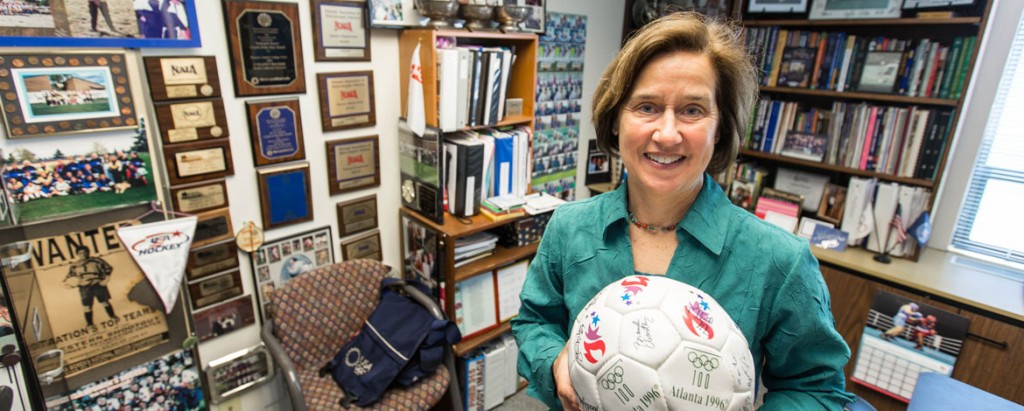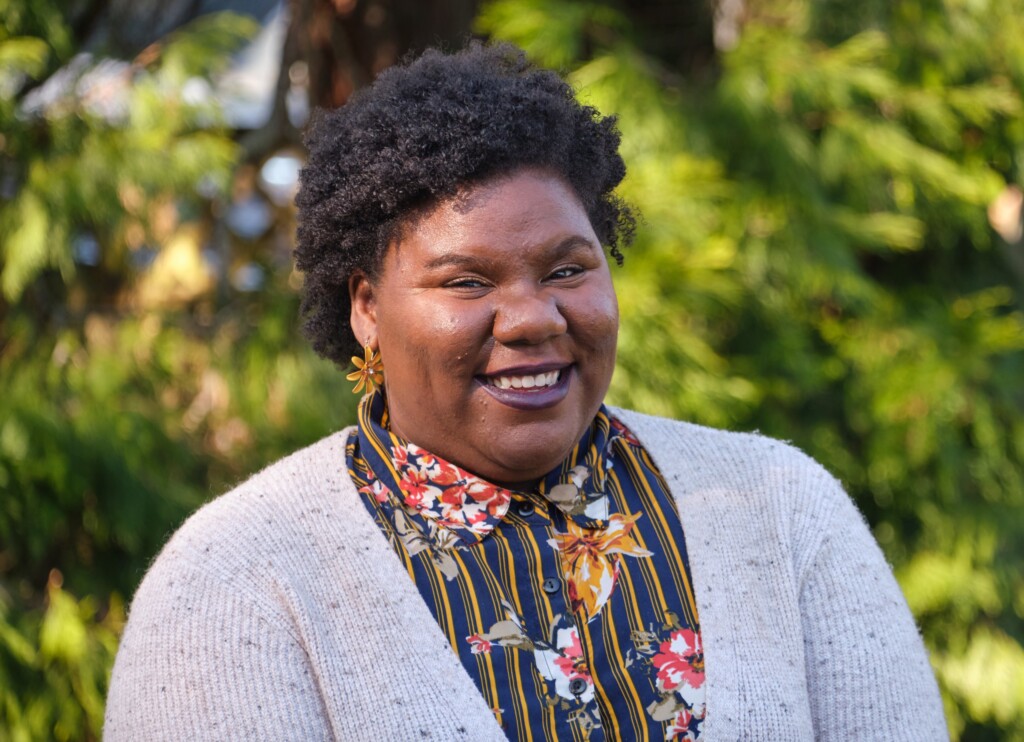Page 75 • (812 results in 0.018 seconds)
-

hopes that they too realize that discovering your vocation isn’t always a linear process — there are setbacks, false starts and plenty of learning opportunities along the way. His hopes set on running a business, Thorpe’s first job after graduating was with Enterprise Rent-A-Car as part of its management training program. Not his dream job by any means, it nevertheless paved the way for his eventual transition to SuperGraphics. “I’m definitely not passionate about renting cars,” Thorpe said. “But I
-

interested in. I knew that I would have a chance at getting an associate’s degree while I was in the military through the language training program. That was definitely one of the motivating factors, as a first-generation college student. Do you feel that language acquisition has helped you in the transition to becoming an undergrad student? Absolutely. The military language school is no joke, so that honed my work ethic. Also, I am able to use my language skills in my research as a history major — it
-
not have that luxury. When she left, Ford felt like a failure abandoning the group. Years later, she heard from the leader of the group that the Kenyan community was doing well. She thinks her brief time with the group, and the training and support she provided, were just what they needed to stick together long enough for them take the next step. “You just never know what your impact is going to be,” Ford explained. “Maybe it was small … but maybe my work with the youth group helped them get to
-
at a street market than out of a catalogue, where prices were jacked up by 300 percent. Her staff were “voracious” learners, and quickly trained up. But she often found that doctors and nurses went right from the American equivalent of high school, straight into a specialty for the next six years. There was very little general medical or science training. There were also the cultural differences. Doctors were expected to take one look at a patient, and know instantly what was wrong. To simply say
-
progressed and, in the end, at conference, I felt I had a good chance.” “Jay came in this year after a strong first season, and continued training in the off season,” said Allison Kolp, who served as PLU’s interim head coach while Johnson took a year off because of illness. “We were able to push Jay in practice further than we did last year and increased his distance in the pool significantly. Jay knew what he needed to do this year, and he was able to swim smarter races, which comes from experience
-

personal stories that made this problem so important and personal for me. Read Previous Composing for the cannery: of boxcars, rhinos, and grapes Read Next First Aid/CPR/AED/BBP training COMMENTS*Note: All comments are moderated If the comments don't appear for you, you might have ad blocker enabled or are currently browsing in a "private" window. LATEST POSTS PLU Director of Athletics and Recreation Mike Snyder named President of NADIIIAA August 16, 2024 PLU College of Liberal Studies welcomes Dean
-

interest in advanced training in Economics, we steer them toward acquiring the mathematics they will need to be successful in a graduate economics program,” adds Peterson. “For those interested in law school, we encourage our students to work closely with the pre-law advisor and to take a wide variety of applied courses in economics, philosophy, history, and politics. The wide exposure to theory and application in our courses is excellent preparation for the kinds of analyses they will be expected to
-

U.S. defeated Canada in overtime, with only one day on the ice before the tournament started. “They had a confidence and a belief and tenacity and sense of mission of purpose,” Hacker said. “And I think that overcame all the traditional impediments that would keep a team able to perform on the world stage in a sold-out rink 24 hours later.” So why does Hacker stay at PLU, especially when she has a full-time job training history-making Olympic athletes? “I must get asked that about 400 times a
-

Center for Gender Equity.The center began as the Women’s Center and is celebrating 30 years in March. Its new name better represents the plethora of services and programs offered. “As the CGE coordinator, I do bystander trainings, Sista Circle, queer programming, and support advocacy,” Jordan said. “Bystander training brings awareness to concerning behaviors and encourages students/faculty/staff to step in when they see potentially harmful situations arise. Sista Circle strives to be a safe space for
-

because the performers’ experience is also different every time.” It’s this excitement, freedom, and creativity that drew Vianna to jazz music. He began his musical training as a child in classical music playing the organ and piano. But growing up in Rio de Janeiro, Brazil, he was surrounded by Latin music and found Brazilian Jazz — a genre that shares the improvisatory, groove-based nature of jazz music but is infused with Latin rhythms—as a teenager. “My first meaningful experiences as a jazz
Do you have any feedback for us? If so, feel free to use our Feedback Form.


